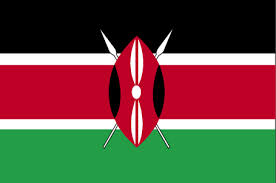ANALYSIS
Cape Town — African leaders have opted to adhere to the law which set up the International Criminal Court in pursuing efforts to keep Kenyan political leaders out of the court.
This is clear from documents published by the African Union (AU) after the extraordinary summit called last weekend to consider its future relationship with the court.
In the lead-up to the summit, fears were raised in press reports that Africa would withdraw from the court as a bloc, after Kenya's Parliament had voted to pull out.
In a stinging attack on the court, Kenya's President Uhuru Kenyatta called it "a painfully farcical pantomime, a travesty that adds insult to the injury of victims."
He accused it of "race-hunting" Africans, saying it "performs on the cue of European and American governments against the sovereignty of African States… It stopped being the home of justice the day it became the toy of declining imperial powers."
But his approach did not reflect the language of AU leaders. The executive head of the AU, Nkosazana Dlamini Zuma, told the summitthat "It is critical that we remain within the legal framework of the Rome Statute."
As the Organisation of African Unity was transformed into the AU, she said, "we moved from a policy of non-interference to the policy of non-indifference; the unequivocal rejection of impunity…"
The Rome Statute was the legal instrument which set up the ICC in 2002 – when Dlamini-Zuma was foreign minister of South Africa, which supported the establishment of the court.
Alluding to violence in parts of Kenya and to the al Shabaab attack on Nairobi's Westgate Mall, Dlamini-Zuma carefully laid out a case for using provisions in the statute and the United Nations charter which would position the AU to argue to the UN Security Council that it should use its power to defer the Kenyan cases to avert "any threat to the peace, breach of the peace, or act of aggression…"
"The security situation in Kenya remains fragile," she said, "as seen in some parts where instability is of ongoing concern, and as experienced with the recent terrorist attack in Nairobi. We should therefore not allow Kenya to slide back for any reason and the AU is keen to see stability and an improved security situation in Kenya."
She implied that this could not be achieved if Kenya's leaders were tied up in trials at The Hague.
"This requires the undivided attention of its leadership, to consolidate and create conditions for lasting peace, security and reconciliation. Given the challenges remaining in the country outlined above and the security threats it continues to face, the elected leadership of Kenya must be allowed to serve their term as mandated by the people of the country…
"We would therefore like the United Nations Security Council and the ICC to work with us to ensure that the process of stability, reconciliation, security and peace in Kenya is consolidated."
Reporting on the outcome of the summit, Ethiopian Prime MinisterHailemariam Dessalegn said Kenya had been advised to apply formally to the Security Council for the case against Kenyatta to be deferred. The Telegraph in London, reported on Sunday that Western diplomats were preparing a resolution that would approve the deferral.
However, Dessalegn made clear the long-term objective went further than a deferral of the Kenyan cases. An AU contact group would also press for a deferral of the case against Sudan's President Omar al Bashir, and raise with the UN other concerns about the court and the Rome Statute.
The AU had resolved that no sitting head of state or government should be required to appear before "any international court or tribunal during his term of office," he said.
However, the issue of whether leaders in government can claim immunity from legal proceedings is unresolved in international law, say legal experts.
In a paper published by London's Chatham House recently, Max du Plessis, Tiyanjana Maluwa and Annie O'Reilly said that under customary international law, senior state officials have immunity.
But, their paper suggested, newly-evolving international humanitarian law might override this prohibition.
Source: allAfrica.com

